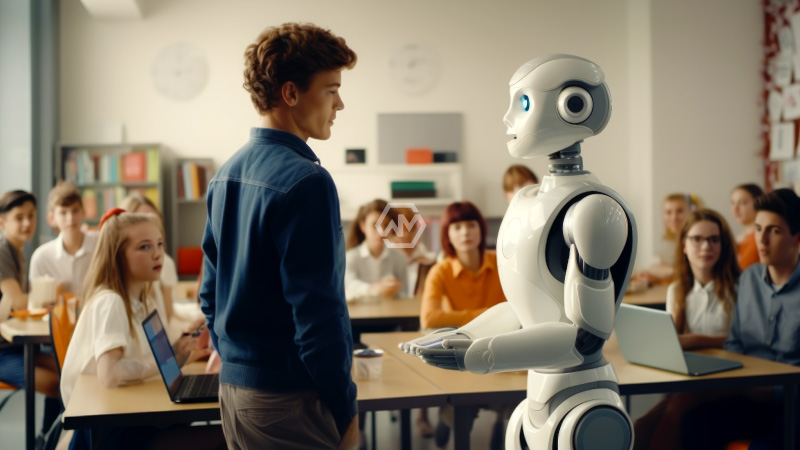- AI tools like ChatGPT are helping teachers create engaging, personalized lesson plans.
- Educators report better work-life balance and higher quality materials with AI support.
- Concerns remain around student overreliance on AI and the need for responsible integration.
In a Dallas classroom, Ana Sepúlveda, a sixth-grade honors math teacher, found a way to blend her students’ love for soccer with geometry using ChatGPT.
Across the country, teachers are embracing AI tools to save time on grading, lesson planning, and communication. A recent survey reveals that 80% of educators using AI feel it reduces administrative burdens, while 60% believe it enhances the quality of classroom materials.
Smart Classrooms: How AI Tools Like ChatGPT Are Empowering Teachers and Students
As artificial intelligence becomes more integrated into education, state governments are stepping in. Currently, 24 states have issued official guidelines for AI use in classrooms, offering training and best practices for teachers. While policies vary, the central idea is to use AI to support—rather than replace—human judgment. Maya Israel, an education technology researcher from the University of Florida, emphasizes that while AI is helpful in tasks like auto-grading, it falls short in evaluating nuanced student work like essays and creative projects.
There’s growing awareness about the ethical implications of using AI in education. While teachers are benefiting from automation and creative inspiration, many remain cautious. Approximately 50% of educators worry that students might become too dependent on AI, losing essential skills like critical thinking and problem-solving. This concern is especially relevant in assignments where independent thought is crucial.
To combat potential misuse, teachers like Darren Barkett in Colorado are developing new strategies to detect AI-generated content. Barkett notes that AI-written essays often feature flawless grammar and vocabulary inconsistent with students’ usual writing styles. While he appreciates AI’s support in streamlining grading and generating materials, he believes that educators must remain vigilant in maintaining academic integrity.
As AI evolves, educators are not just adapting but also shaping how these tools are used in schools. Many now see themselves as digital mentors, helping students navigate the line between technology use and misuse. With proper training and ethical guidance, tools like ChatGPT can enhance—not hinder—learning. This balance between innovation and responsibility is key to preparing students for a world where AI is part of everyday life.
AI tools like ChatGPT are changing how teachers teach and students learn, offering creative possibilities and time-saving benefits — but only when used wisely.
“The mind is not a vessel to be filled but a fire to be kindled.” — Plutarch
This quote highlights the educator’s role in nurturing thought, even in an age of intelligent machines.



